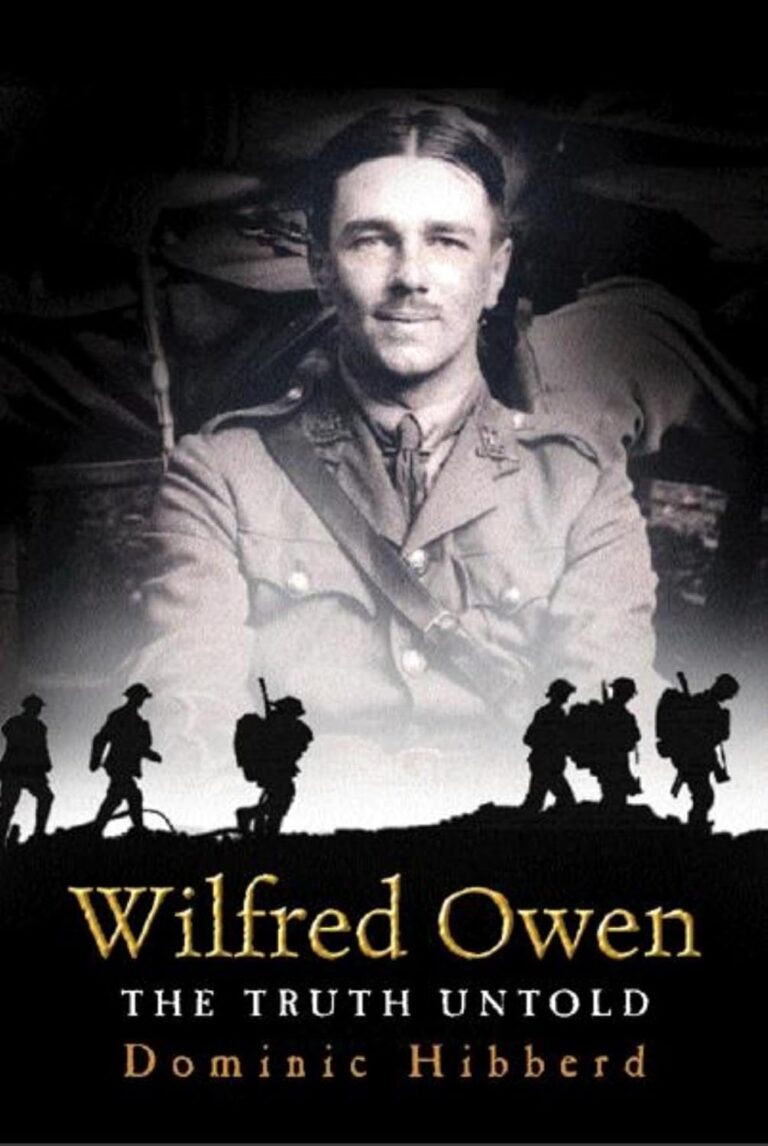It seems amazing that this is the first major biography for almost thirty years of the man who gave definitive expression to the English experience of the First World War. It is, in fact, only the second ever. Yet now, if you ask someone to name a war poet, they will probably mention Wilfred Owen before Sassoon or Brooke, let alone Blunden or Gurney. Although Owen only saw five of his poems published in his lifetime, and posthumous recognition came unbelievably slowly (because of his relative social obscurity, his family’s guardedness, and, above all, the uncompromising message of his work), with the Sixties and the era of Vietnam his coruscating, pitch-perfect attacks on the waste and degradation of war at last hit home.
A poet, if he is good enough, lives on after his death (that’s part of the point of what he does), and the posthumous progress of his work in the affections of the public and the pages of the critic is, in my opinion, just as interesting and relevant a part of his biography as, say, his early childhood. Dominic Hibberd deals with the reception of Owen’s poetry in an epilogue that—to make one of the few possible criticisms of this quiet, authoritative life—could have done with being twice as long.
Beyond narrating the facts, and identifying those areas in which we can only speculate, the author’s agenda seems to consist of two self-appointed tasks. The first is to show that it was not only the war that made Owen a poet, that his talent had begun fermenting long before he went to the Front in 1917—that, in other words, Hibberd is justified in recounting Owen’s early life, as opposed to beginning his narrative in 1914 or later. He is slightly pushing against an open door here. Or rather, he is pushing against the wrong door, since to say that the war made Owen a poet is not necessarily to deny that he wrote poetry before 1914, or to say that his experiences growing up in a lower-middle-class family in Birkenhead and later Shrewsbury, as the son of Evangelical parents, did nothing to influence his later development. The point is that the difference in quality between the poetry he was writing in early 1917 and what he produced later in that year is phenomenal, and needs to be addressed.
The war, clearly, was one essential catalyst. The other was Siegfried Sassoon. Owen met him late in 1917, at Craiglockhart War Hospital for Neurasthenic Officers, and Hibberd conveys a fine sense of the upper-middle-class Sassoon’s patrician, sometimes patronising, attitude towards Owen, who hero-worshipped him in return. Sassoon referred to him as ‘little Owen’, and wrote to Osbert Sitwell as late as July 1918: “He is so nice and shy, and fervent about poetry, which he is quite good at, and will do very well some day.” This was the short-sightedness of the mentor towards the superior talents of his protégé.
One night during his thirty or so days at the Front in 1917, Owen had been asleep on a railway bank when a shell exploded a few yards from his head, unearthing and scattering the remains of a 2nd Lieutenant named Gaukroger, which then “lay in various places round about”. A couple of weeks later, Owen was “observed to be shaky and tremulous, and his conduct and manner were peculiar, and his memory was confused”. He was shipped home and sent to Craiglockhart. This leads us on to the second of Hibberd’s tasks, which is to absolve Owen of the charge of cowardice. The facts suffice. The poet showed himself a calm and dogged soldier in 1917, and displayed conspicuous gallantry on his return to the Front in 1918, in what turned out to be the last big attack of the war. It was his gallantry that got him killed. The remarks of reviewers who dismissed the 1920 edition of his poems as the work of “a broken man” now seem beneath contempt.
In contrast, say, with Rupert Brooke, it is not the right question to ask about Owen what he would have achieved if he had survived. At the age of twenty-five, he had produced work which, while most memorable for its anger and pity, on the technical side alone was an astonishing achievement, combining musicality and realism with a success barely achieved elsewhere in English poetry. Dominic Hibberd’s biography, a self-effacing study of a self-effacing man, is particularly effective in communicating a sense of its subject’s shy charm. Owen’s strongest love was for his mother, his greatest admiration for Sassoon. He was childlike in his awe of people from grander backgrounds than his own, and said that, after reading Sassoon, Shakespeare seemed “vapid”. One is left wondering if he realised the worth of what he himself had written.

